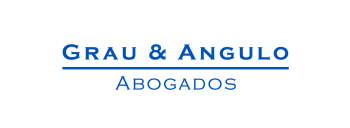On May 18 2017 the Barcelona Court of Appeal revoked the Barcelona Commercial Court Number 5 order and granted a preliminary injunction against Fast Eurocafé, SA on the basis of EU Patent 1.472.156 (EP'156)/Spanish Patent 2.260.626 and EU Patent 1.808.382 (EP'382)/Spanish Patent 2.407.963.
Société des Produits Nestlé, SA is the holder of EP'156 and EP'382, which protect the capsules used in the well-known Nescafé Dolce Gusto system.
Since May 2015, Fast Eurocafé has imported, offered and sold capsules for a beverage compatible with the Nescafé Dolce Gusto system.
In January 2016 Nestlé filed a patent infringement action with a preliminary injunction motion against Fast Eurocafé based on the abovementioned patents.
By order of April 2016, Barcelona Commercial Court Number 5 dismissed Nestlé's preliminary injunction motion. It held that the urgency requirement had been undermined because Nestlé had tolerated Fast Eurocafé's activity for a "long time".
Nestlé appealed the decision, arguing that it had not tolerated the defendant's activity. It held that, during the seven months that had elapsed between the last communication from Fast Eurocafé and the moment of filing the preliminary injunction motion:
- Fast Eurocafé had modified its capsules' technical features; and
- Nestlé had:
- acted against Fast Eurocafé before the EU trademarks and designs courts in two different proceedings for infringement of the industrial design which protects the packaging of the Nescafé Dolce Gusto system capsules; and
- obtained two preliminary injunctions which had stopped the commercialisation and retained more than 318,000 capsules with the controversial packaging.
Nestlé also reiterated the arguments relating to prima facie case.
Fast Eurocafé opposed the appeal, arguing that:
- Nestlé's patents were invalid; and
- they had not been infringed.
Barcelona Court of Appeal decision
The Barcelona Court of Appeal revoked the Barcelona Commercial Court Number 5 order and granted the preliminary injunction, holding that both requirements (ie, the prima facie case and urgency) had been met.
Urgency
The Barcelona Court of Appeal agreed with Nestlé that it had not tolerated the infringement. The court order highlighted how Nestlé had filed two actions based on the infringement of the industrial design which protects the Nescafé Dolce Gusto capsules and obtained two different preliminary injunctions against Fast Eurocafé's capsules between May and October 2015, which had forced Fast Eurocafé to stop selling the capsules with the controversial packaging.
The Barcelona Court of Appeal ruled that although these actions were not based on the patents, it was clear that Nestlé's intention had been to stop the commercialisation of the controversial capsules:
- first, through the design actions; and
- second, through the patent action.
This judicial activity is incompatible with the concept of tolerance, which can undermine the urgency requirement.
The court added that, in this case, the defendant's activity – including launching different beverage varieties and changing the structure of its capsules – had justified the time that Nestlé had invested in the preparation of the patent action with a more difficult preliminary injunction motion.
The Barcelona Court of Appeal also considered that the time that had elapsed between the defendant's last communication (June 2015) and the moment of filing the preliminary injunction motion (January 2016) could not be considered to be a 'long time' in view of the above circumstances. Thus, the urgency requirement could not be considered to have been undermined.
Prima facie case
On this matter, the order first discussed this requirement by explaining that the patents' validity could not be analysed in these preliminary injunction proceedings, as Fast Eurocafé had not challenged the validity in the first instance, but only in the opposition to the appeal.
Having clarified the above matter, the court then analysed the merits of the case.
The court interpreted the scope of Nestlé's patents in the same manner in which Nestlé had in its complaint. Thus, it disagreed with Fast Eurocafé's interpretation and considered that this interpretation was an unjustified limitation of the patents' scope. Consequently, it considered that, as regards EP'156, it was unreasonable to require the opening of the capsule to be performed by means of tearing or perforation. Further, as regards EP'382, the word 'tearing' must be understood according to the description of the patent in a broad sense.
As regards the different ways of opening – namely, through holes (ie, small perforations in the middle of the capsules) and through V shapes (ie, by opening a capsule's thin film at its edge) – the court considered that the V-shaped openings fell within the scope of protection of both patents. It was irrelevant for the court whether the opening was produced by means of a tear, perforation or break. What was relevant was that an increase of pressure inside the inner capsule provoked the displacement of the thin film against the opening means (ie, raised and recessed elements). This action led to an opening of the thin film at the edge, which enabled the beverage to flow out.
The Barcelona Court of Appeal stated that – bearing in mind the evidence presented in the preliminary injunction proceedings, which had suggested that the through holes would not permit a substantial outflow of the beverage – it had some doubts regarding the patents' infringement. However, as the holes appear only in some capsules, while the V shapes appear in all, it was unnecessary to analyse them in more detail in these preliminary injunction proceedings.
The Barcelona Court of Appeal's decision is final.
This article was first published by the International Law Office, a premium online legal update service for major companies and law firms worldwide. Register for a free subscription.
For further information on this topic please contact Ana-Laura Morales at Grau & Angulo by telephone (+34 93 202 34 56) or email ([email protected]). The Grau & Angulo website can be accessed at www.gba-ip.com.



